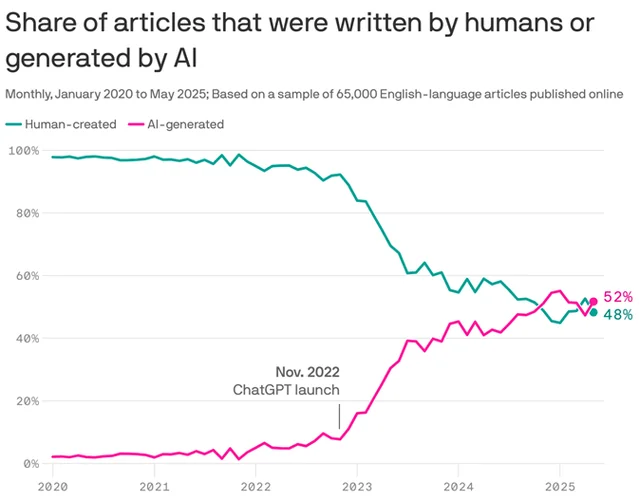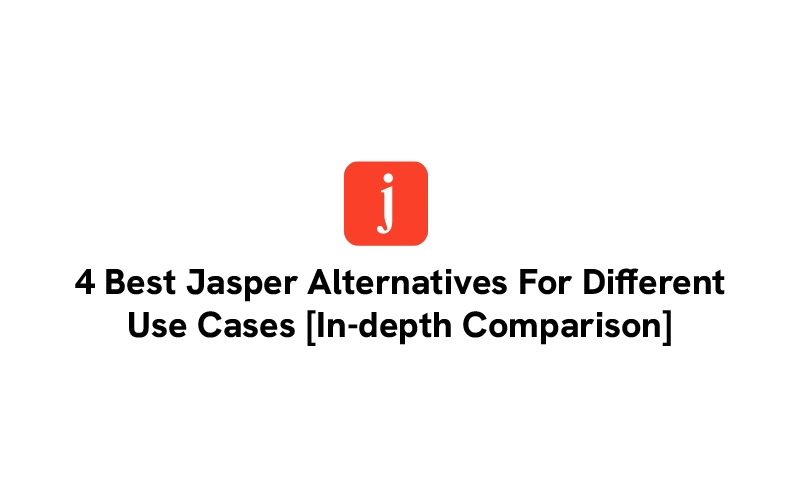Content writers are becoming obsolete, and we're not sorry about it.
Before you close this tab, hear us out. Every day, thousands of AI-generated articles flood the internet. Most of them are garbage because people don't know how to use AI properly. They're just recycling the same information over and over, creating a sea of mediocre content that nobody wants to read.
At ContentMonk, we don't view this as a death sentence for content professionals, but rather as an evolution. The writers who survive won't be the ones cranking out generic blog posts. They'll be the ones who know how to extract unique insights, interview experts, and feed AI systems the raw material that actually makes content worth reading.
That's why at ContentMonk, we're on a mission to kill the traditional content writer role and replace it with something better.
The Big Content Problem
Content writing has always been the online skill with the lowest barrier to entry. Five years ago, ten years ago, even fifteen years ago, if you could write reasonably well and hit a deadline, you could get paid to create content. No specialized degree or complex technical skills required. Just the ability to research a topic and explain it clearly.
And honestly? That worked fine. Companies needed content, writers could produce it, and readers got information that helped them solve problems. The market was balanced.
Then AI Lowered the Bar Even Further
AI has totally removed the barrier to creating content. Now, anyone can produce okay content, even if they're not great writers or don't have time to write. Jump into ChatGPT, go back and forth a few times, and boom. You've got an article.
As a result, thousands of AI-generated articles are published every day. AI-generated content is now growing faster than human-written content online.

However, we now face another problem: 99% of these articles are garbage. Not because AI can't write well, but because 99% of people don't know how to use it effectively.
They're feeding AI the same prompts, asking the same questions, and getting the same recycled information that everyone else is publishing. It's an echo chamber of mediocrity, and it's making the internet worse.
Why Your Current Content Strategy Is Failing
Even sophisticated content software can produce exceptional articles from the start. Tools like ContentMonk can generate genuinely great content in minutes. So if AI can write a great article on its own, what's the point of content writers anymore?
The brutal truth is that traditional content writers, doing what they've always done, are no longer useful for entrepreneurs, companies, or the market.
When everyone's using AI to recycle the same information, there's only one way to create content that actually stands out - you need better inputs:
- Unique insights,
- First-party data,
- Different points of view,
- Original stories,
- Real expertise.
These are the things that separate exceptional content from the sea of AI-generated sameness. Feed these into your AI system or ContentMonk, and you'll get articles worth reading. Skip this step, and you're just adding to the noise.
So what happens when AI can do 90% of what content writers used to do? The role transforms into something that actually matters.
The Evolution of Content Writers
The traditional content writer role is done. You can't compete with AI on speed, cost, or even baseline quality anymore. ContentMonk writes a solid article in three minutes. A human writer needs three to five hours to produce the same output. That math doesn't work in anyone's favor, and pretending otherwise just delays the inevitable.
But content professionals aren't obsolete. The skill of stringing sentences together might be commoditized, but the ability to find something worth saying isn't. That's the distinction that matters now.
We at ContentMonk strongly believe that content writers should evolve into content strategists and marketers.
What Content Strategists Actually Do
Content strategists don't write from scratch anymore. They dig for unique insights, interview subject matter experts, hunt down first-party data, and uncover stories nobody else is telling.
They're journalists first, feeding AI systems with proprietary perspectives rather than recycling the same generic takes that everyone else publishes.
This means your day shifts from grinding out drafts to strategic work: research, stakeholder interviews, competitive analysis, and finding the angles that differentiate your content from the noise.
Then you hand those insights to AI and let it handle the heavy lifting of turning ideas into polished articles.
How ContentMonk Enables the Transformation
ContentMonk gives you back time you didn't know you could reclaim. Instead of spending five hours writing and editing a single article, you spend three minutes generating a draft from your strategic inputs, then 10 to 15 minutes polishing it to perfection. That's nearly four hours you can redirect to finding better insights, repurposing content across channels, or executing campaigns that actually move pipeline numbers.
The writers who make this shift will become more valuable because they're doing work AI can't replicate: thinking strategically about audience needs, understanding business context, and uncovering the differentiated perspectives that make content worth reading instead of skipping.
The Bottom Line
AI and products like ContentMonk have commoditized the mechanics of writing, but they can't replace the strategic thinking that makes content valuable. The content professionals who win in this new landscape are the ones who stop grinding out drafts and start hunting for the unique insights, first-party data, and expert perspectives that AI needs to produce something worth reading.
Here's what you should do next:
- Audit your current content process and identify how much time you spend writing versus researching and gathering unique insights
- Start building a system for capturing proprietary perspectives-interview internal experts, collect customer stories, and document first-party data
- Test AI content tools like ContentMonk to generate drafts and articles from your strategic inputs, then measure how much time you reclaim
- Redirect that saved time into higher-value work: deeper research, better distribution, or content that drives measurable business results
The content writers who thrive won't be the ones who write the most words-they'll be the ones who find the best ideas and know how to turn them into content that cuts through the noise.
Book a demo with the ContentMonk team to see how ContentMonk can help you plan your content ops, collect unique insights, write exceptional articles, and repurpose them in seconds.




